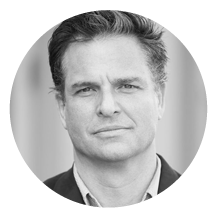Carter Dillard began his career as an Honors Program appointee to the U.S. Department of Justice, eventually practicing national security law with the U.S. Department of Homeland Security, where he developed a human-rights approach to family planning published by Yale Law School that would have significantly mitigated the climate crisis. He wrote his Master of Laws thesis on that approach at New York University under Jeremy Waldron.
Dillard has also served as a peer-reviewer for the journal Bioethics as part of the Steering Committee of the Population Ethics and Policy Research Project and as a Visiting Scholar at the Uehiro Center, both at the University of Oxford in Oxford, England.
Dillard co-founded the Fair Start Movement (FSM), where he currently serves as the policy advisor. FSM has developed a “just creation norm” as a human rights-based, child-centric, and “zero baseline” family planning model with an exponentially more significant impact on sustainable development and animal protection than downstream alternatives.
He currently serves as an advisor and counsel for the Stable Planet Alliance.
Dillard also served as the director of litigation at the Animal Legal Defense Fund. During that time, he helped quadruple the number of cases the organization had filed and helped oversee its first undercover investigations.
In 2023, Dillard became a whistleblower in a Newsweek op-ed showing wrongdoing around measuring climate reparations in U.S. climate litigation.
Dillard is the author of Justice as a Fair Start in Life (Eliva Press, 2021), which explores what is called the “constitutive fallacy”—basing one’s obligation to follow the law on top-down instruments like written constitutions rather than bottom-up family reforms that measurably empower people, and enable them to physically constitute—under the Children’s Convention—legitimate societies.
His book reveals what’s called the “FamScam”—that civil society organizations have been knowingly undoing claimed progress with outdated family policies that disempowered most people to—per one Nobel laureate—grow economies that benefitted a few. Dillard advocates for groups to be transparent about the “whole truth” concerning the impact of family policies on their progress and to adopt internal employment policies that start to change this.
Dillard also served as general counsel at Animal Outlook and director of farmed animal litigation at the Humane Society of the United States. He has taught on the faculties or held appointments at the University of Oxford, Lewis and Clark Law School, Emory University School of Law, and Loyola University New Orleans, College of Law.
Dillard has been invited to speak at the United Nations World Civic Forum and dozens of other conferences. He has appeared on Fox Business News, and his work has appeared in the New York Times, Salon, The Hill, Washington Times, and the International Herald Tribune.Media ran thousands of stories containing stealth advertising, claiming reductions in climate emissions from things like dietary change, or energy conversions, while simultaneously pushing women to have more kids in order to grow the unsustainable economies relied upon by their advertisers and parent companies.
Businesses sunk hundreds of millions of dollars into advertising their green, sustainable, environmentally friendly, and other claims.Yet, as awareness grows of the current environmental dangers and those that lay ahead, governmental and economic policies to counter climate change remain fixated largely on efforts to increase the use of renewable energies, place limits on harmful emissions, improve energy efficiency, and boost conservation and recycling efforts. What is typically left unspoken is a policy program that offers the most effective and equitable way to improve the environment for current and future generations, namely family planning.
Fair Start Movement (FSM), an NGO focused on addressing climate and social issues triggered by intergenerational inequality, places family planning at the core of its mission. Policies that support and empower smaller families to share resources and work together create fairer, more sustainable societies. Such societies prioritize children and not just adults, preserve animal and plant species and not just humans, and protect future generations and not just the current one, explains Carter Dillard, policy director of FSM, in this interview.How did we ever come to believe in the myth of intentional, just and legitimate systems of social organization—like states, corporations, and families—without actually accounting for the fair creation, development and consensual inclusion of future generations—the majority of persons—into those systems? How is consent, or self-determination, possible without that account? What norm could possibly precede that account?
These articles—several peer-reviewed and originally published by Yale, Duke, Northwestern and other universities—will argue that, abstraction aside, there is no real justice without ensuring all children a fair start in life, both socially and ecologically.
We first move towards justice by reforming the moral and legal right to have children, and the family planning systems the right creates, around zero baseline —or Fair Start—modeling that through collective child-centric planning enables consent to power and thus relative self-determination against the true baseline of nonpolity. Without it, we never orient our actions from a just, or inclusive and reflective, position.Sentientism is “evidence, reason & compassion for all sentient beings.”
The audio is on our Podcast: https://apple.co/391khQO & https://pod.link/1540408008.

